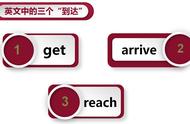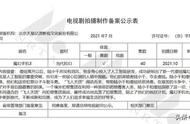
如:
They arrived at the station at eight o’clock this morning.他们今天早上八点到达车站。
She arrived home late yesterday.她昨天很晚到家。
Her mother saw her when she arrived home.她到家时她妈妈看见了她。
We arrived at the Shanghai Railway Station at 11:00 pm last night.
We arrived at the station five minutes late. 我们到车站晚了五分钟。
When we arrived at Wuhan Airport, it's midnight.
When did you arrive in Beijing?
Do you know what time the plane arrives in London?你知道飞机什么时候抵达伦敦吗?
It was the cold season when I arrived in Germany.
They will arrive in Paris next Monday. 他们将于下周星期一到达巴黎。
When she reached home,her mother asked,“Have you got everything?”当她回到家时,她妈妈问道,“所有的东西都买了吗?”
They reached the top of the mountains. 他们到达了山顶。
They reached Beijing on 17 February.他们2月17到达北京。

和arrive一样,get也是不及物动词,只是它常用于口语,其后接的介词是to,后面如接副词,则不用介词to。例如:
How can I get to the post office? 我怎样才能到达邮局。
Have we got to the zoo yet?我们到动物园了吗?
The visitors got there last night.参观的人昨晚到这儿的。
I get to school at 7:30 every day, and get home at 5:00 in the afternoon. 我每天7:30到校,下午5:00到家。
从上面的句子可以看出,这三个词都可表示“到达”之意,但三者的用法却不尽相同:get是一个不及物动词,其后可直接跟上副词,当在其后接名词时应用get to;arrive也是一个不及物动词,当其后跟上名词时应用介词in或at,当后面的地点为一个大地方用介词in,当后面的地点为小地方时则应用介词at;reach则是一个及物动词,其后无论是接副词还是名词均不可用介词。
这几个词的区别不是太大,主要是别用混了介词。例如
Mr Green arrived in/got to/reached Wuhan last night.格林先生昨晚抵达武汉。
I think they will reach/arrive in/get to Beijing tomorrow morning我想他们明天早上能到北京。
If you don't get up early,you'll not get/arrive /reach there early.
如果你不早点起来,你就不能早点到那儿。

















